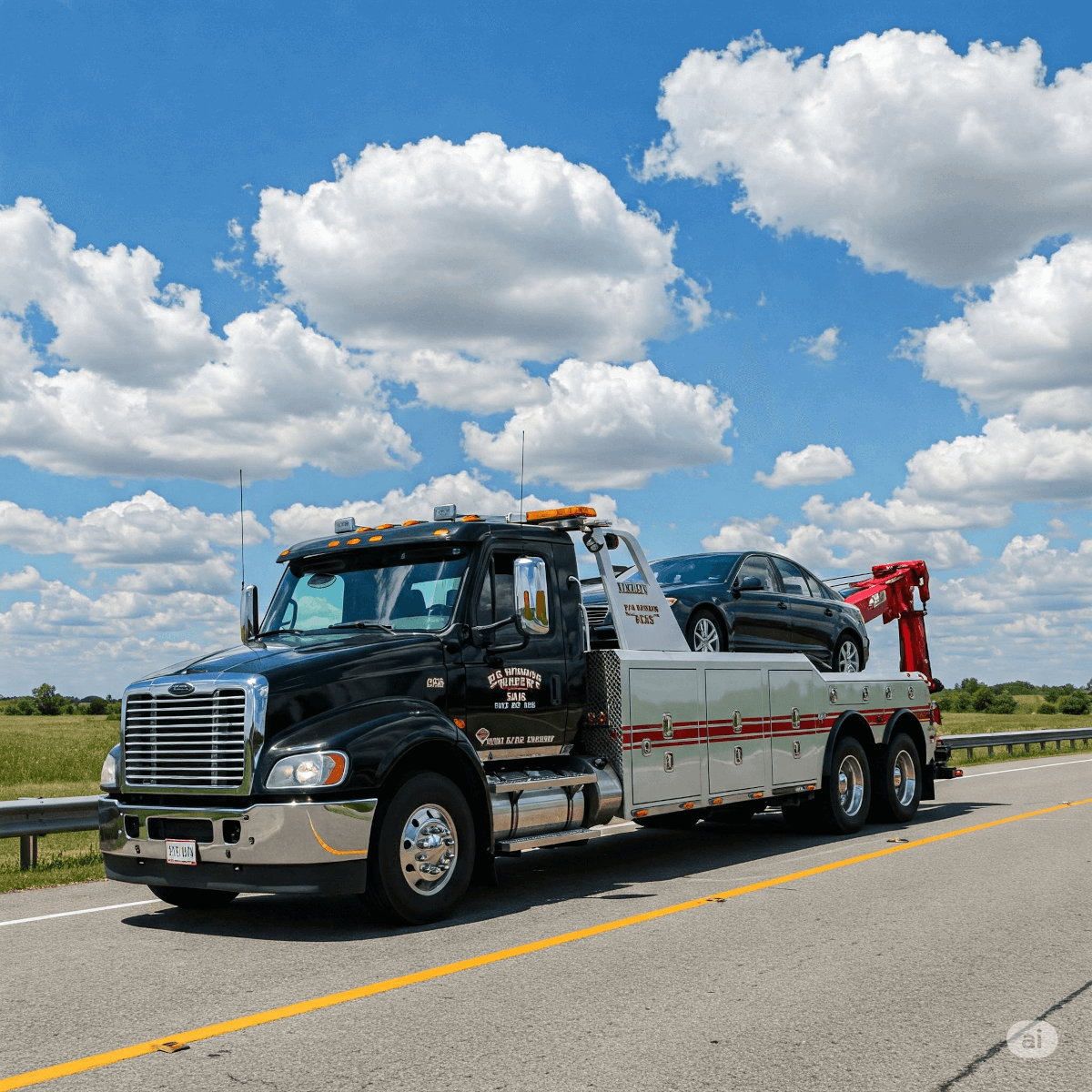Your Complete Guide to Stress-Free State to State Car Towing in the U.S.
Relocating to a new state? Buying a vehicle from across the country? Or simply planning an extended road trip and need your car transported? Whatever the reason, towing a car across state lines is a decision that calls for careful planning. The process may sound intimidating, but with the right information and tools, it can be surprisingly smooth.
In this guide, we'll break down everything you need to know about long-distance car towing — from legal requirements and towing methods to comparing providers and preparing for pickup day. Let's make your vehicle relocation stress-free.
Why People Tow Cars Across State Lines
People tow their vehicles for many reasons. A job relocation to another state is one of the most common scenarios. Others include students moving to college, snowbirds traveling between seasonal homes, or car buyers who purchase vehicles out-of-state and need them delivered. Sometimes, emergencies such as breakdowns or accidents also require towing a car over long distances.
Regardless of the reason, getting your vehicle from point A to point B safely and efficiently starts with understanding your options.

What to Know Before You Tow
Before hitting the road — or hiring someone else to — there are a few key considerations that can affect how your vehicle is transported:
Legal Requirements and Safety Rules
Each state has its own rules around towing. You'll need to ensure the towing method complies with both the origin and destination state's laws. For example, safety chains, brake lights, and license plates are often required, even on towed vehicles.
Flatbed vs Dolly Towing
Flatbed towing is typically the safest choice for long distances. It lifts all four wheels off the ground, reducing wear and tear. Dolly towing — where only the front wheels are elevated — is less expensive but not suitable for all vehicles, especially all-wheel drive (AWD) models.
Vehicle Type and Distance
The size, weight, and type of vehicle matter. Towing a compact sedan is vastly different from towing an SUV or pickup truck. The longer the distance, the more important it becomes to use proper equipment and an experienced provider.
DIY vs Hiring a Professional Interstate Towing Service
Towing a car yourself might seem cost-effective at first. You can rent a trailer, attach it to a truck, and handle everything independently. But this approach comes with challenges:
-
Safety Risks: Inexperienced drivers towing heavy loads are more prone to accidents.
-
Hidden Costs: Fuel, equipment rental, lodging, and time add up.
-
Complexity: Navigating highways, inclines, and weather conditions while towing is no small feat.
That's why many individuals opt for a professional interstate towing service. These companies have the right tools, insurance, and expertise to make the process easier and safer.
How to Choose a Reliable Long-Distance Towing Provider
Choosing the right provider is critical. Here's what to look for:
Licensing & Insurance
Ensure the towing company is fully licensed and insured to operate across state lines. This protects you if damage occurs in transit.
Reviews and Ratings
Check customer feedback on platforms like Yelp or the Better Business Bureau. Look for consistent praise on professionalism, timeliness, and communication.
Avoiding Scams
Beware of unrealistically low quotes. Scammers may ask for upfront payments and never show up. Always request a written contract and verify company credentials.
Comparing Options to Save Time & Money
Once you've decided to hire a pro, it's wise to get multiple quotes. But calling every company in town takes time.
That's where tools that allow you to compare state to state car towing services online come in handy. These platforms let you evaluate prices, customer reviews, and service features side-by-side — all in one place. It's an efficient way to identify trusted, vetted towing companies without the guesswork.
What to Expect on Pickup & Delivery Day
When towing day arrives, preparation helps things go smoothly:
Timeline & Communication
You'll receive a pickup window and should confirm it in advance. Stay in touch with the driver to coordinate access to your vehicle and answer any last-minute questions.
Documents to Have Ready
Keep your ID, vehicle registration, proof of insurance, and towing agreement handy. Some providers may also require a copy of the title or power of attorney if someone else will be receiving the car.
Personal Items
Remove all valuables from the vehicle. Many providers prohibit transporting personal items inside due to insurance restrictions.
Conclusion: Getting Your Vehicle Safely to Its Destination
Whether you're crossing one state border or five, understanding the ins and outs of long-distance car towing makes a big difference. From choosing the right towing method to comparing licensed providers, each decision affects your peace of mind and your vehicle's safety.
To get started, take the time to compare your options. Trusted online platforms make it easy to find affordable, reputable services tailored to your route and needs. With the right partner, your vehicle will be on its way — and you can focus on the journey ahead.
Published 5/14/25